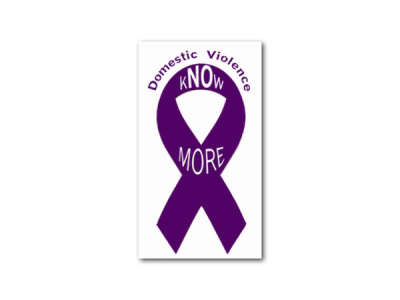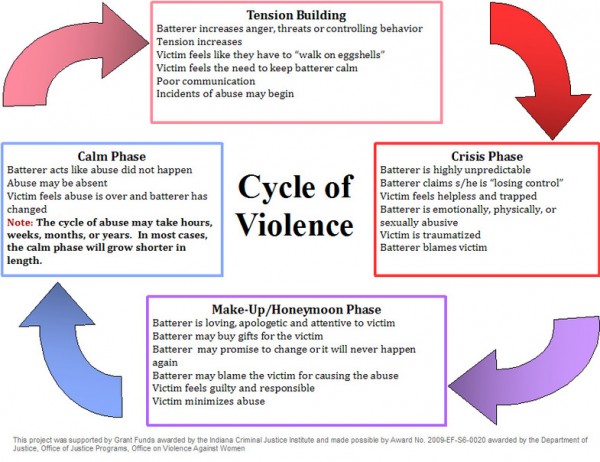
Suzanne Dow is the Executive Director of Circle of Hope, a Habersham County based shelter and service for battered and abused women and their children. Circle of Hope is a private, non-profit, 501(c)3 multi-faceted domestic violence agency whose mission is to support, empower and bring hope to those affected by domestic violence through advocacy, awareness, education and community partnerships.
Our community experienced a devastating tragedy Sunday evening when three lives were lost and countless others hurt due to domestic violence. Everyone associated with Circle of Hope continues to hold those affected in our prayers. It is common in the wake of such devastation to ask ourselves if there was anything that could have been done to prevent this tragedy from occurring, and it is also important to state that law enforcement and domestic violence agencies alone cannot eradicate domestic violence. Our community is not alone, as over 1,400 individuals have lost their lives to domestic violence in the past eleven years in the State of Georgia.
An effective response to addressing domestic violence involves a community-wide response from many fronts. The criminal and civil justice systems have a role in holding perpetrators accountable; schools have a role in educating our youth about the realities and dangers of domestic violence; faith leaders have a role in sending a message from the pulpit that domestic violence is unacceptable; employers have a role in implementing policies and protocols that are supportive of victims; and friends, neighbors, family members, and co-workers of domestic violence victims have a role in being alert to the potential danger and knowing available resources to assist those experiencing violence.
kNOw the facts
For the past ten years, the Georgia Coalition Against Domestic Violence and the Georgia Commission on Family Violence have collaborated on a Fatality Review Project that has analyzed 126 domestic violence fatalities and six near-fatalities that occurred in Georgia between 2003 and 2013. The findings of the Fatality Review Project have helped identify areas of improvement for the many systems involved in addressing domestic violence. The findings are important to discuss because improving our responses could potentially save lives. The following data is derived from the 10th Annual Georgia Domestic Violence Fatality Review Report of 2013.
In the 126 fatality project-reviewed cases, victims had made 235 calls to police prior to the fatality occurring. The outcome of those initial calls is only known in 178 of the cases. Of the 178 known outcomes, 40% of the cases resulted in a charge by prosecution. Alarmingly, 61% of those charges were subsequently either dismissed or pled down. This means that of 235 calls for help from victims who ultimately lost their lives, only 28 cases resulted in some type of adjudicated outcome. Although Family Violence Intervention Programs are available for offenders of domestic violence, many perpetrators are not ordered to attend the 24 week class, or if they are ordered to attend, they fail to comply with the order and no accountability system is in place to monitor the non-compliance of attendance.
Firearms have a tremendous impact on the outcome of domestic violence related fatalities. Firearms were the means of death in 56% of the 126 reviewed fatalities and in 98% of the domestic violence related murder-suicides recorded in Georgia from 2010-2013. Research shows that the presence of a gun in a domestic violence situation increases the risk of homicide by 500%. Perpetrators’ access to firearms increases the risk of danger for victims, perpetrators, first responders and innocent by-standers. Federal law prohibits those convicted of domestic violence misdemeanors and those subject to a Temporary Protective Order from possessing firearms and ammunition. Federal law requires enforcement of these laws at the state level and several states have passed clarifying legislation to ensure appropriate implementation of the Gun Control Act. However, Georgia is a state that has not passed any clarifying language and therefore local law enforcement agencies and court systems are left to enforce a Federal Law that lacks the clarity needed to address issues surrounding the collection, storage and release of the firearms in domestic violence related cases.
In the 126 project reviewed cases, 51% of the victims began their relationship, with the person who eventually killed them, when they were between the ages of 13 and 24. Teen dating violence occurs at alarming rates, and even though Georgia law requires the Board of Education to develop teen dating violence prevention programs for grades 8 -12, implementation is left up to local school boards, and in most local school systems, does not occur.
Faith leaders and employers also play an important role in intervention. Those experiencing domestic violence often turn to others – friends, family, co-workers and their pastor – before, or instead of, reaching out to law enforcement or agencies such as Circle of Hope. Those closest to them often know of the victim’s plans or attempts to separate from the abusive situation. In almost all of the 126 fatality cases reviewed in the Georgia Fatality Project, the victims were attempting to end the relationship or had already taken steps to end the relationship. Many times the focus of ending an abusive relationship is put on the victim to just walk away. However, research shows that ending, or making attempts to end, a relationship in which power and control are factors is actually more dangerous for the victim.
kNOw the cycle of domestic violence
Domestic violence is defined as a pattern of abusive behavior in any relationship that is used by one partner to gain or maintain power and control over another intimate partner. Domestic violence can be physical, sexual, emotional, economic, or psychological actions or threats of actions that influence another person. This includes any behaviors that intimidate, manipulate, humiliate, isolate, frighten, terrorize, coerce, threaten, blame, hurt, injure, or wound someone. Many of those following the events occurring on the night of February 22, either thru scanners, the media or social media reports, felt their own sense of fear when it was unknown if others’ lives were at risk with an armed gunman in our midst. I encourage those in our community to recognize that the fear we felt for a few hours, is often the same fear someone being terrorized by a partner or former partner, experiences on a continuous basis. There are others among us who are experiencing such terrorism at this very moment.
Since 2003, nine deaths have occurred in Habersham County as a result of domestic violence. According to the Violence Policy Center, Georgia currently ranks 9th in the nation for rate at which men kill women. So we ask, is there anything that could have been done to prevent such a tragedy from occurring? We may never know the answer to that question, but I do know that as an advocate who has worked to end domestic violence for many years, my work is not over. It is evident that we all have something we can contribute that can result in increased victim safety, accountability of perpetrators, and a community attitude and response that sends a message to all victims that domestic violence is a crime that we will not ignore. I propose that there is still much work that can be done to improve many systems within our state and our community that just might change the outcome for victims of domestic violence. One of the avenues working on many of these system responses is the Mountain Judicial Family Violence Task Force. The Task Force is open to anyone who has an interest in working on solutions to address domestic violence in our community.
kNOw the risk factors of domestic violence
Circle of Hope will continue to educate and create awareness regarding the dangers of domestic violence, not just for those experiencing violence but also to those who may have knowledge of someone experiencing domestic violence but are unsure how to help. All abusive relationships are different but there are warning signs that serve as indicators a relationship may escalate to fatality level. Research has been conducted for years to examine factors that were present in domestic violence fatalities. The following list of risk factors is intended to help ascertain level of risk and should not be used as absolute guidelines as to whether a relationship will become deadly.
- A separation or an attempt to separate
- Past acts of attempted strangulation
- Prior intervention by law enforcement – fatalities almost always occur in a context of historical violence
- Abusive partner displays obsessive-possessiveness and/or is extremely jealous
- Abusive partner is making threats to kill victim, often providing details of intended method of death
- Abusive partner is making threat to commit suicide
- Victim has sustained serious injury in prior abusive incidents
- A weapon has been used or threatened in prior abusive incidents
- Abusive partner has access to guns
- Abusive partner abuses drugs and/or alcohol
- Abusive partner shows signs of depression
The more indicators present, or the greater intensity of the above indicators, the greater the potential for a domestic violence related fatality. The single best predictor of future violence continues to be past violence. No one, in any absolute sense, can predict lethality or serious injury to a victim. However, by evaluating risk you can attempt to seek protection against identified dangers.
kNOw help is available
It is important for victims of domestic violence to know that there are resources available to help them address the abuse or even just evaluate their lethality risk. Services offered through Circle of Hope include a 24-hour confidential crisis line; 24-hour staffed safe, emergency shelter; safety planning, lethality assessment and advocacy services for all victims, including those not seeking shelter; weekly support groups for victims and their children; legal advocacy services to assist victims with obtaining a Temporary Protective Order, pursue criminal warrants or apply for Victim’s Compensation; and counseling with licensed therapists. Circle of Hope also provides education and training to community agencies and individuals to further the aim of creating an environment that is sensitive and responsive to the needs of victims.
I encourage those of you that may be experiencing domestic violence to reach out for assistance and those of you who know someone being abused to talk to them about the dangers of their situation.
Reaching out for help could mean the difference between life and death.
All services are free and confidential and available to any victim of domestic violence. Victims of abuse do not have to reside in the shelter facility to receive services. For more information about Circle of Hope, including volunteer opportunities, contact Circle of Hope at 706-776-3406 or visit www.gacircleofhope.org. If you are a victim of abuse in need of services please call the 24-hour crisis line at 706-776-4673 (HOPE) or Georgia’s state-wide toll free number 1-800-334-2836 to reach the domestic violence agency closest to you.







